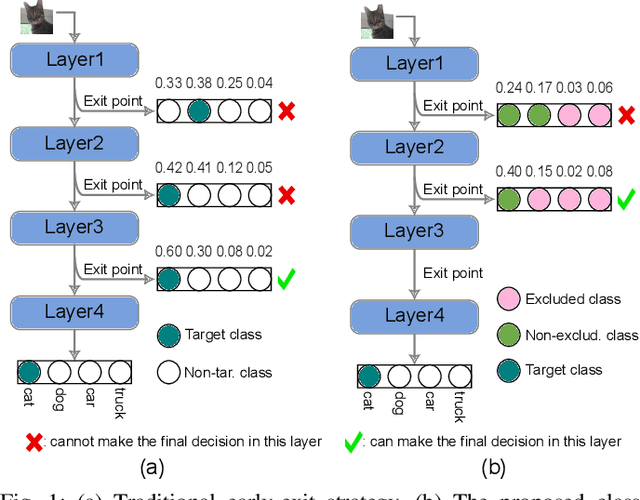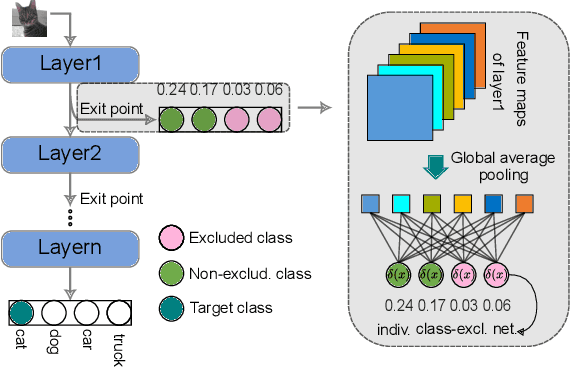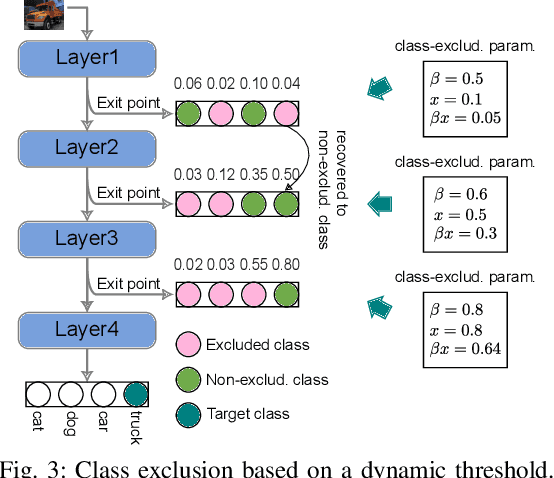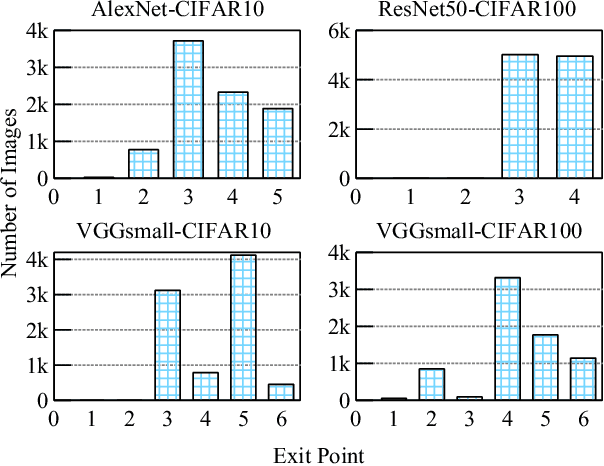Early Classification for Dynamic Inference of Neural Networks
Paper and Code
Sep 23, 2023



Deep neural networks (DNNs) have been successfully applied in various fields. In DNNs, a large number of multiply-accumulate (MAC) operations is required to be performed, posing critical challenges in applying them in resource-constrained platforms, e.g., edge devices. Dynamic neural networks have been introduced to allow a structural adaption, e.g., early-exit, according to different inputs to reduce the computational cost of DNNs. Existing early-exit techniques deploy classifiers at intermediate layers of DNNs to push them to make a classification decision as early as possible. However, the learned features at early layers might not be sufficient to exclude all the irrelevant classes and decide the correct class, leading to suboptimal results. To address this challenge, in this paper, we propose a class-based early-exit for dynamic inference. Instead of pushing DNNs to make a dynamic decision at intermediate layers, we take advantages of the learned features in these layers to exclude as many irrelevant classes as possible, so that later layers only have to determine the target class among the remaining classes. Until at a layer only one class remains, this class is the corresponding classification result. To realize this class-based exclusion, we assign each class with a classifier at intermediate layers and train the networks together with these classifiers. Afterwards, an exclusion strategy is developed to exclude irrelevant classes at early layers. Experimental results demonstrate the computational cost of DNNs in inference can be reduced significantly.
 Add to Chrome
Add to Chrome Add to Firefox
Add to Firefox Add to Edge
Add to Edge